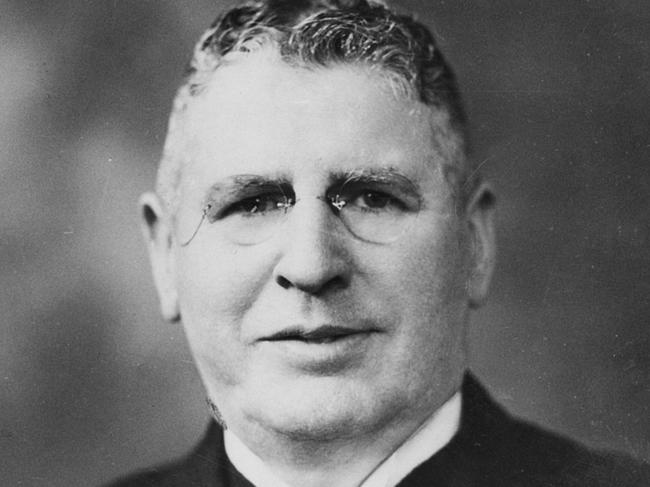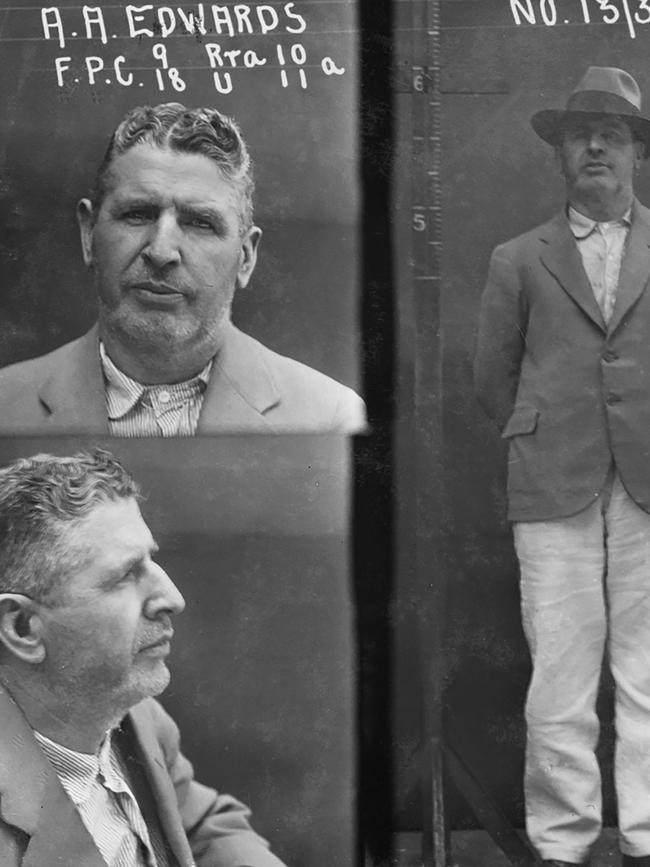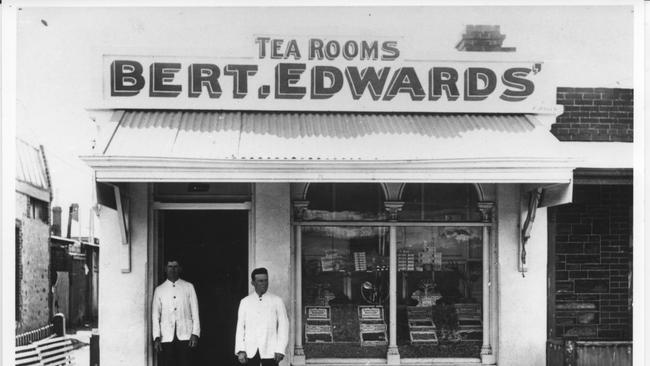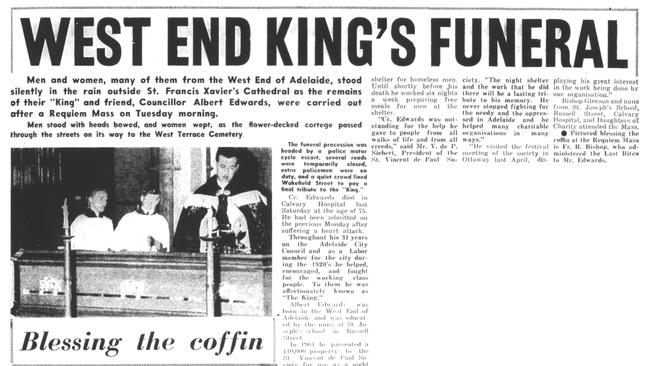SA’s forgotten King of the West End
Possibly the illegitimate son of a premier and infamously imprisoned for sodomy, Bert Edwards forged his own controversial path as an MP, businessman and gay legend.

SA Weekend
Don't miss out on the headlines from SA Weekend. Followed categories will be added to My News.
Albert Augustine (Bert) Edwards is acknowledged in the Adelaide queer community as a local legend: he’s been the subject of an Ian Purcell musical, King of the West End and was prominently featured in a walking tour of Adelaide, both staged as part of the FEAST Festival.
The one-time Labor MP and city councillor, infamously imprisoned for sodomy in a trial much like Oscar Wilde’s, grew up in the back streets of the West End and famously looked out for the city’s poor as he rose to amass modest riches of his own.
Rumoured to be the illegitimate son of a Premier, known as an associate of underworld Melbourne businessman John Wren, his personality was as flamboyant as his dress sense.
These days, despite considerable achievements on behalf of the city’s disadvantaged, he is largely forgotten by mainstream Adelaide.
When Bert Edwards died aged 75, in August 1963, his was one of the largest funerals ever held in the city up to that time, headed by a police motorbike escort when the procession made its way from St Xavier’s Cathedral to the Catholic section of West Terrace Cemetery.
Bert was born in the back streets of the West End in 1888, reputedly the illegitimate son of Premier Charles Cameron Kingston.

When he was legally old enough to hold a property lease, he turned a former bakery, opposite the Central Market, into Bert Edwards’ Tea Rooms, used much like a club for the city’s football-playing youth.
He was involved in the West Adelaide Football Club as chairman of the second team and was a regular volunteer for the Australian Labor Party.
He was voted as a city councillor for the Grey Ward in 1914, the year the First World War began.
Bert applied for and gained the licence of the Duke of Brunswick Hotel in Gilbert St, then one of about 128 pubs in the city.
In 1917, Bert won a state parliamentary seat for Adelaide in a by-election where icy weather kept most potential voters at home. (State voting was not compulsory until 1942.)
As a state politician, Bert supported such issues as better wages and conditions for the police force, better city housing, protection of the Adelaide Park Lands, the anti-conscription debate and was an advocate for the protection of rights of German migrants and their Australian-born children.
Appointed the Visiting Magistrate for Prisons in 1924, he worked zealously to change the system, in quick time.
But the thugs he thus exposed retaliated by writing sensational, lewd tales in reports about Bert’s “meddling” to his foes in the Liberal Party. Bert also contributed to amendments to the Probation Act of 1924.

When rumours worsened of Bert’s “meddling” in prison affairs, members of his own party, including the premier, did not support him.
He quit in disgust at the end of 1926, despite several MPs from both sides acknowledging his fine achievements.
In 1929, he was praised in a report from the Comptroller of Prisons.
Police were incensed after Bert spoke out in parliament about the fatal shooting of an escaping offender, by a police officer who had been involved in another fatal shooting several months before. Soon after, an under-aged youth blamed Bert for “showing him the ropes” after he was arrested for abusing a male child. Within three weeks, police had worked up the youth’s claims into a case against Bert and arrested him for sodomy.
The two main witnesses giving evidence against him both perjured themselves.
Yet, despite shaky evidence, the case went to trial in February 1931. Bert was found guilty, due to timing, provocation and “strong” evidence – despite him having one of the best lawyers in the state and friends who were involved in “jury squaring” (bribery of jurors).

Bert was sentenced to five years, with hard labour, in Yatala Labour Prison, but was released for exemplary behaviour at the hands of his own amended Probation Act after just two years and four months.
His 1933 release, at the height of the Great Depression, saw him return to what he was best at – running a pub, the Castle Inn in Hindley St.
He tried his luck at many council, state and federal elections, but it was 1948 before Bert finally won back his old Grey Ward seat, aged 60.
Bert died in office following a heart attack, having donated several substantial city properties several years before his death for use as hostels for homeless men or recently released prisoners. He also made generous donations to several other alms-giving charities throughout the city. Adamant about not wanting the Catholic Church as an institution to get its hands on any of his estate, he left it to the nuns of the Sisters of St Joseph, with firm instructions to give “happiness, education and opportunity of advancement in life to children who have been in an orphanage or public institute for delinquent children”.
In 2008, Bert was included in a series of exhumations to establish paternity by Premier Charles Cameron Kingston, but while half a dozen others were confirmed as his illegitimate children, Bert’s DNA results were inconclusive.
(Though that is not the end of the story!)
Bert Edwards: King of the West End by Patricia Sumerling, (Wakefield Press, RRP $39.95*)
*$29.95 from News Shop, 31 Waymouth St, Adelaide. Phone orders 8206 3317
